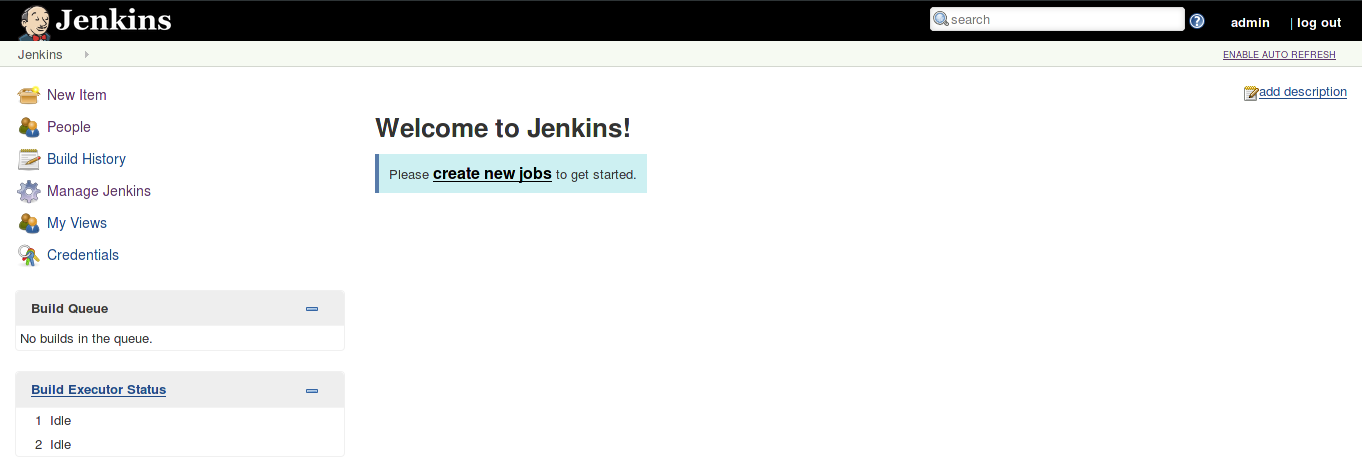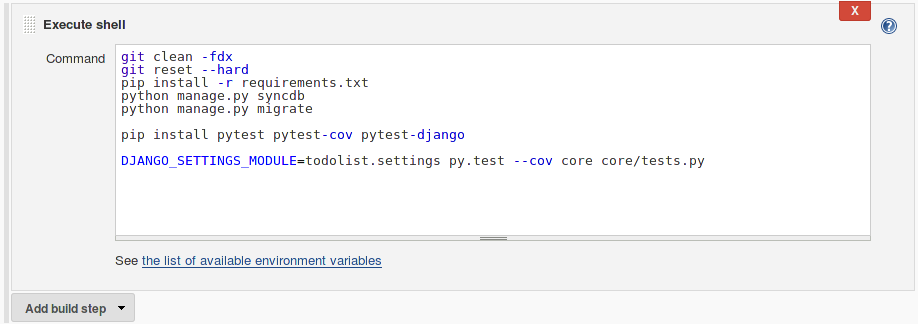Continuous Deployment on Jenkins and Docker
Miguel Ángel García Martínez
What are we going to see?
JenkinsDockerDocker-Compose- Continuous Integration
- Continuous Deployment
Why?
Individuals and interactions over processes and tools
How are we going to do that?
- Running a Jenkins server
- Configuring a little project
- Testing and deploying when it changes
How are we going to do that, exactly?
- Run Jenkins server
- Run Jenkins server on Docker
- Configure the job te be launched
- Run jenkins-swarm slave
- Run jenkins-swarm slave on Docker
- Create a docker-compose with both
- Add master branch continuous integration
All of this in 5 minutes
Installing Jenkins:
wget http://mirrors.jenkins-ci.org/war/latest/jenkins.war
java -jar jenkins.war
Requirements:
Yes, it requires java
Jenkins landing page

Installing Jenkins, Docker mode:
docker run -p 8080:8080 -p 50000:50000 jenkins
Docker glossary:
- Image: like a class
- Container: like an object
- Volume: a mount point
Docker in a nutshell:
- docker images Shows all downloaded images
- docker ps Shows all running containers
- docker ps -a Shows all created containers
- docker run <image>
download the image if necessary, create a container and run it. - docker exec -ti <container> <command>
Executes the command on container
Configuring a job in jenkins:



Drawbacks:
- How to prevent installing python, ruby, java, etc. in the same host?
- How to prevent installing two different versions of python, ruby, java, etc. in the same host?
- How to prevent installing two different versions of a library?
- How to migrate the current infrastructure to production?
- Get rid of packaging systems, like deb, rpm, ...
Our own image (reduced)
FROM java:8-jdk
RUN apt-get update \
&& apt-get install -y \
git \
wget \
python3 \
python3-pip
RUN apt-get clean
RUN wget http://[...]/swarm-client-2.0-jar-with-dependencies.jar
COPY jenkins-slave.sh /usr/local/bin/jenkins-slave.sh
VOLUME /home/jenkins-slave
ENTRYPOINT ["/usr/local/bin/jenkins-slave.sh"]
Docker-compose
- Allows us to create a default docker configuration
- Allows us to create a network of dockers
- And all of this in a simple YAML file
Docker-compose
version: '2'
services:
master:
image: jenkins:2.7.1
ports:
- 8080:8080
volumes:
- ./data/master:/var/jenkins_home
slave:
build: slave
command: -master http://master:8080 -executors 1
-labels python -name builder
-username swarm -password swarm
links:
- master
What does we have?
What does we want?
Drawbacks
- Database preloaded data
- Third party services (RabbitMQ, ...)
- New development requirements
- Security issues